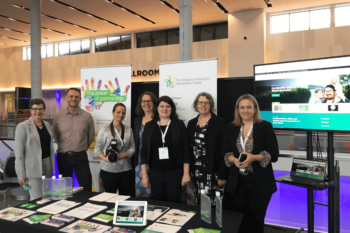Compelling case for prevention: Findings from the GoHealth model

DATE
Time to AEST
Event Series Research Seminar
Location Online
In this webinar, the modelling team will present insights on the model that may be useful for policy makers. This will be followed by a panel discussion on how we can improve the chronic disease risk factor landscape in Australia.
About the research
The Prevention Centre is a pioneer of dynamic simulation modelling to provide synthesised advice for policy on chronic disease prevention. Dynamic simulation models are computer models that are simplified representations of the real world.
We developed a national dynamic simulation model of chronic disease prevention, the GoHealth model, based on trends in the prevalence of nine modifiable risk factors. The model projects the health burden and economic costs of preventable disease in Australia.
To the best of our knowledge, the GoHealth model is the first dynamic simulation model in the world that captures the dynamic relationships between risk factors for chronic disease in a comprehensive way and links these to burden of disease and associated economic costs.
Lack of consistent and reliable Australian data on risk factor prevalence meant we could not develop the model into a robust decision support tool for policy. However, the model demonstrates underlying behaviour in the system, enabling us to offer policy-relevant recommendations and make a compelling case for action on chronic disease prevention.
This project aimed to establish a compelling argument for investment in prevention and determine how best to target preventive strategies for maximum impact. To learn more about this model, watch this video on the project’s development delivered in December 2021.
Agenda
- 2.00 pm Introduction: Professor Lucie Rychetnik
- 2.05 pm Presentation: Insights from the model: Dr Danielle Currie
- 2.25 pm Panel discussion: How we can go about painting a better picture of the risk factor situation in Australia? Professor Andrew Wilson, Associate Professor Stephen Begg, Associate Professor Jo-An Occhipinti
- 2.55pm Wrap up & close: Professor Lucie Rychetnik
Related resources
-
Compelling Case for Prevention: findings and insights from the GoHealth model
Resource category:Videos
Date -
Accelerating risk factor reductions in a systems model of chronic disease burden
Resource category:Videos
Date -
Compelling Case for Prevention: preview of the GoHealth model
Resource category:Videos
Date
